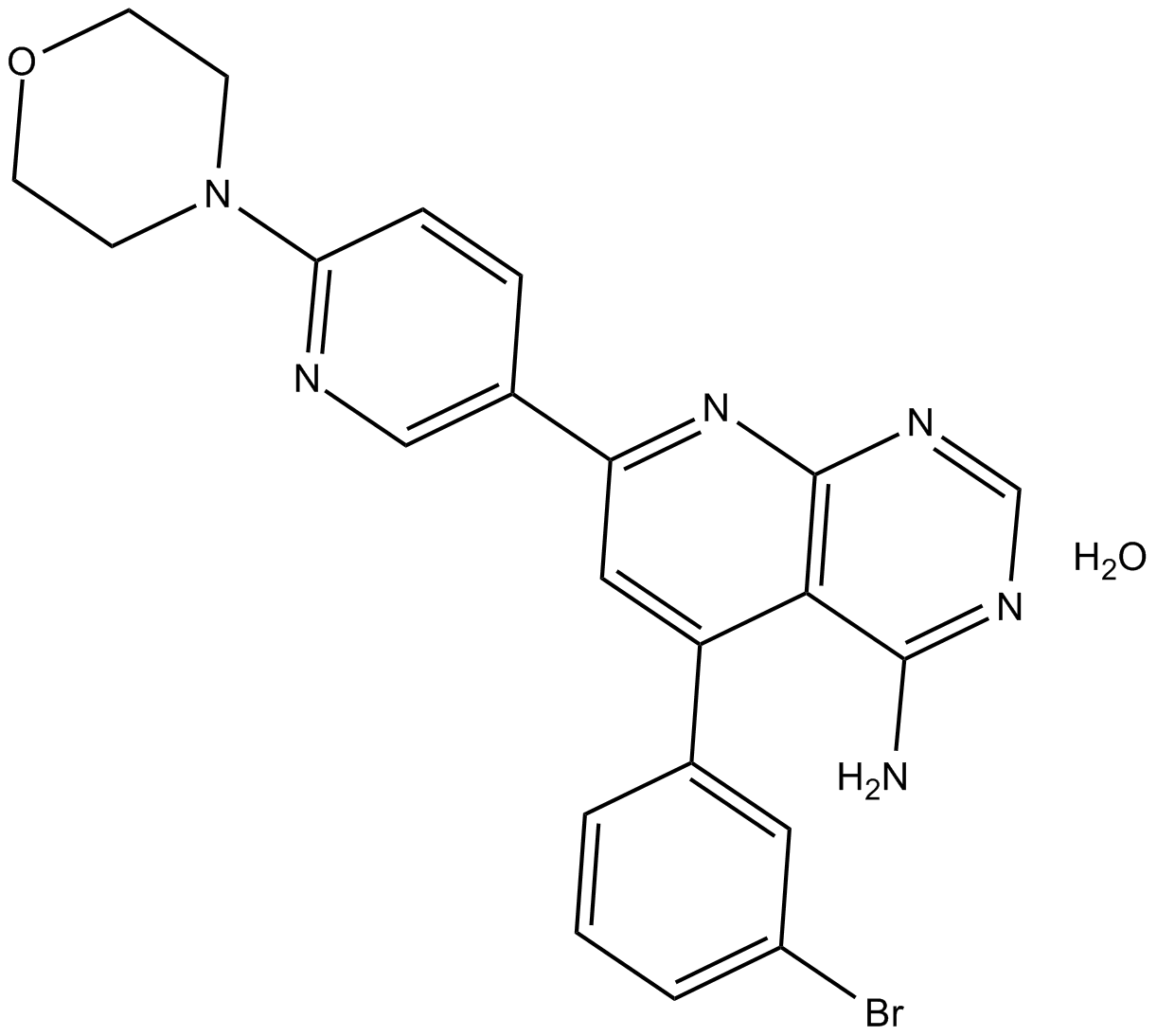Adenosine Kinase Inhibitor (hydrate) (Synonyms: ABT-702) |
| Catalog No.GC16930 |
inhibitor of adenosine kinase
Products are for research use only. Not for human use. We do not sell to patients.

Sample solution is provided at 25 µL, 10mM.
IC50: 1.7 nM in cell-free assays
Adenosine Kinase Inhibitor is an inhibitor of adenosine kinase.
Adenosine kinase is the key metabolizing enzyme regulating cellular adenosine concentrations. Inhibition of adenosine kinase can selectively enhance the protective actions of adenosine during tissue trauma without producing the nonspecific effects associated with the systemic administration of adenosine receptor agonists.
In vitro: Adenosine Kinase Inhibitor was found to be a potent non-nucleoside adenosine kinase inhibitor with several folds of magnitude selectivity over other sites of adenosine interaction. Adenosine Kinase Inhibitor was 1300- to 7700-fold selective for adenosine kinase compared with other neurotransmitter and peptide receptors, neurotransmitter/nucleoside reuptake sites, and enzymes. Adenosine Kinase Inhibitor was equipotent in inhibiting native human adenosine kinase, human recombinant isoforms, as well as adenosine kinase from dog, rat, monkey, and mouse brain [1].
In vivo: Adenosine Kinase Inhibitor was orally active and efficacious in reducing acute somatic nociception in the mouse hot-plate assay. Adenosine Kinase Inhibitor could dose-dependently reduce nociception in the phenyl-p-quinone-induced abdominal constriction assay. The antinociceptive effects of Adenosine Kinase Inhibitor in the hotplate assay were stop by the nonselective adenosine receptor antagonist theophylline, but not by a peripherally selective adenosine receptor antagonist [1].
Clinical trial: So far, no clinical study has been conducted.
Reference:
[1] Jarvis, M. F.,Yu, H.,Kohlhaas, K., et al. ABT-702 (4-amino-5-(3-bromophenyl)-7-(6-morpholino-pyridin-3-yl)pyrido[2,3-d]pyrimidine, a novel orally effective adenosine kinase inhibitor with analgesic and anti-inflammatory properties: I. In vitro characterization and acute antinociceptive effects in the mouse. Journal of Pharmacology and Experimental Therapeutics 295(3), 1156-1164 (2000).
Average Rating: 5 (Based on Reviews and 4 reference(s) in Google Scholar.)
GLPBIO products are for RESEARCH USE ONLY. Please make sure your review or question is research based.
Required fields are marked with *




















